



What do APAC consumers (actually) want from brands and CEOs?
share on
It seems that "purpose" is not just a marketing fluff but an area consumers really expect from brands. According to the latest Edelman Trust Barometer, around 68% of APAC respondents said that they see brands playing a key role in bringing communities together and emphasising on common interest that would strengthen the social fabric.
In Asia Pacific, the role of the CEO and the business remains key as consumers place more and more trust in organisations. In fact, 77% of consumers in APAC want brands and CEOs to pull advertising money from platforms that spread misinformation and CEOs are expected to defend facts and expose questionable science used to justify bad social policy.
The role of the CEO today has really evolved to be an advocate of positive change in the world. APAC consumers mostly expect CEOs today to act on employees, climate and discrimination. According to the Edelman Trust Barometer, treatment of employees came out as the top responsibility of the CEO to take in APAC. This notion came out the strongest in Indonesia at 94 points, followed by Japan at 93 and Malaysia at 90.
Climate change and discrimination was also big on the agenda for Indonesians coming in at 90. Singapore fell on the lower end of the spectrum of APAC nations when it came to both the issues, while Malaysia hovered in the middle. Consumers also believe that the best societal outcomes emerge when government and business work together.
Among the 54% who say it is possible for a business to address societal issues without being seen as politicised, they mostly want businesses to be a trustworthy information source. Claims and calls, in their eyes, should be based on science and politics and should not be involved in decision making.
Meanwhile Edelman also highlighted the top 10 trends seen this year amidst communities.
1. Economic optimism collapses
Currently 44% of regional respondents say they and their families will be better off in five years —an 8-point decline from 2022. In 24 of 28 countries surveyed, optimism was at record lows.
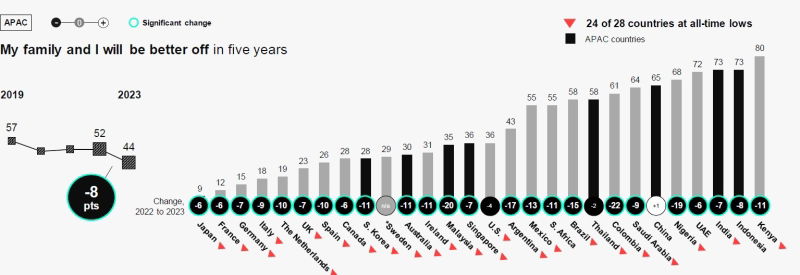
2. Institutional imbalance
Regionally, there is a 5-point gap between trust in business and trust in government: 65% trust business while 60% trust government.
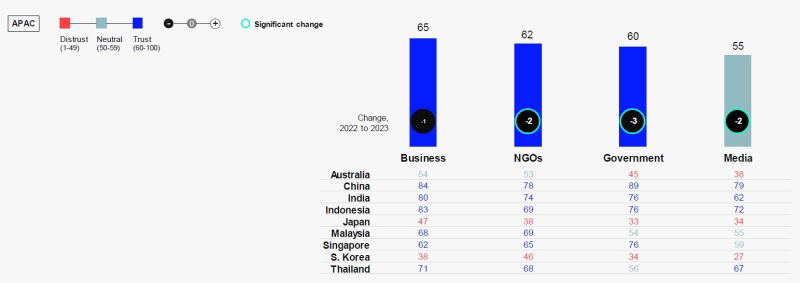
3. Mass-class divide in trust
Those in the top quartile of income are more trusting of institutions than those considered low income (bottom quartile). Double-digit trust inequality exists in 20 of 27 countries surveyed, and Thailand tops the global list with a 37-point income-based trust divide.
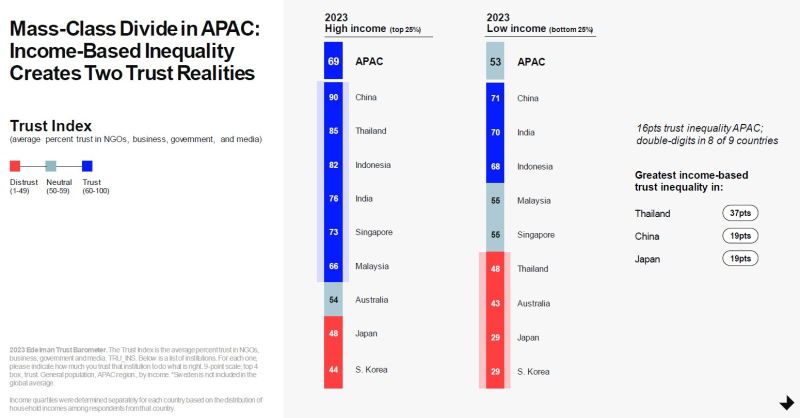
4. Business is seen as competent and ethical
Business has increased its ethics score for the third straight year, rising 18 points since 2020 in APAC. It is the only institution viewed as both competent and ethical.

5. Polarisation is most severe when divisions become entrenched
Based on that understanding, both South Korea and Japan are at risk of severe polarisation. Distrust leads to polarisation, which in turn makes forging trust more difficult.
6. Social fabric weakens amid deepening divisions
Around 61% in APAC say that the social fabric that once held their country together has grown too weak to serve as a foundation for unity.
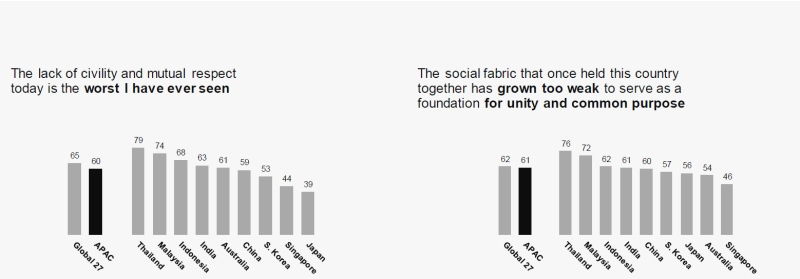
7. Distrust gets personal
Few people say they would help, live near or work with someone who strongly disagrees with their point of view, on an issue they feel strongly about.

8. People want business to do more
People say business should do more, not less, to address societal issues like climate change, energy shortages and economic inequality.
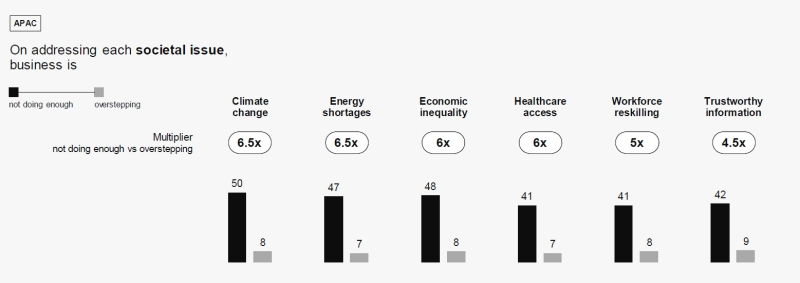
9. Over half in six of nine APAC markets say business can avoid politicisation
Being a trustworthy information source insulates business from being seen as politically motivated when taking a stand.
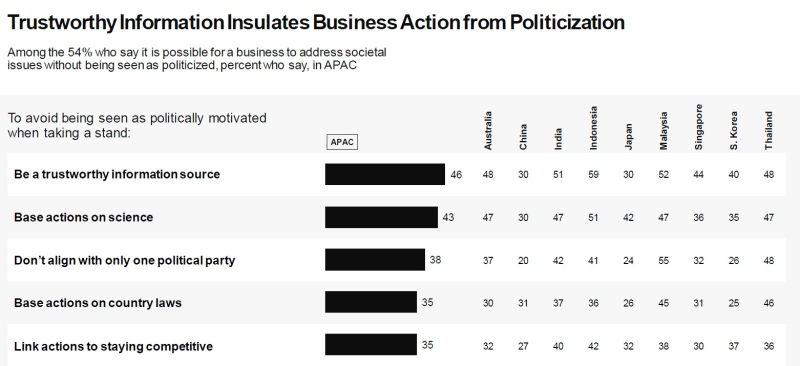
10. Battle for truth: Business should hold divisive forces accountable
An average of 63% say companies supporting politicians and media outlets that build consensus could help to strengthen the social fabric.
Related articles:
What will deinfluencing's impact be on cult branding?
Study: 67% of Indonesians more likely to trust brands advertising on OTT
Brand Finance: A look at the leading brands in SG, and why tech brands tumbled
share on
Free newsletter
Get the daily lowdown on Asia's top marketing stories.
We break down the big and messy topics of the day so you're updated on the most important developments in Asia's marketing development – for free.
subscribe now open in new window
